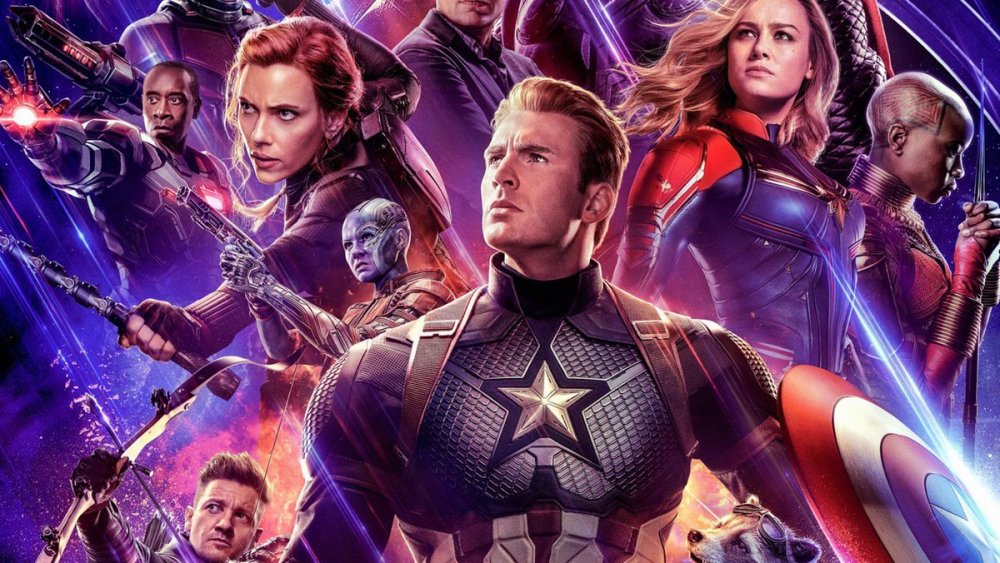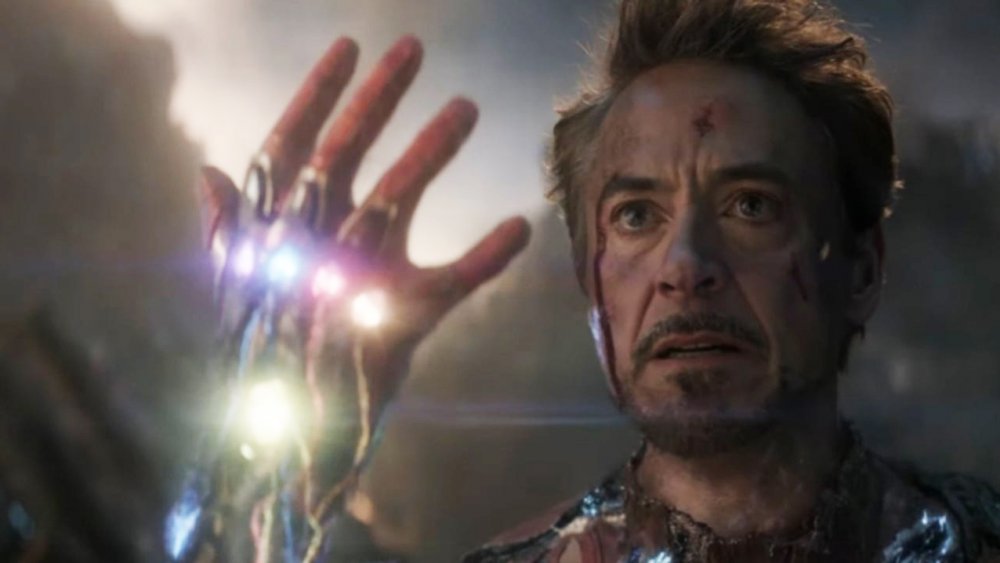The Hidden Meaning Behind Avengers: Endgame's Opening Song
If a picture is worth a thousand words, how many is a song good for?
In Avengers: Endgame, one little tune speaks volumes. The film's co-directors Joe and Anthony Russo and its music supervisor Dave Jordan chose to implement a 50-plus-year-old song over top the opening credits of what went on to become the most financially successful movie in cinematic history. That tune is "Dear Mr. Fantasy," the 1967 release by English rock band Traffic. The track — which kicks off with some grooving guitars and the crooning line, "Dear Mr. Fantasy, play us a tune" — likely tickled the brains of Marvelites everywhere long after the closing credits rolled.
And there's a good reason for that. Not only is the song an infectious one, but it's also deeply resonant to the narrative of Avengers: Endgame the more you think about it. Joe Russo more or less confirmed this during a livestream of the film — hosted on April 27, 2020 on Instagram with special guest Robert Downey Jr. (who appeared about two-thirds of the way through the hour-long, pre-live-tweeting event) — and hinted at the true meaning of the song as it's used in Endgame.
Tony Stark is the man of fantasy that the Avengers need
Joe Russo explained during the Endgame event that the lyrics of "Dear Mr. Fantasy" parallel the story of the film. The song, which plays over the opening credits just after the scene in which Hawkeye's (Jeremy Renner) family members disintegrate before his very eyes, addresses "Mr. Fantasy" — asking him to "play us a tune, something to make us all happy, do anything, take us out of this gloom." It then goes like this: "You are the one who can make us all laugh / But doing that you break out in tears / Please don't be sad / If it was a straight mind you had / We wouldn't have known you all these years." The first grouping of lines is repeated twice, and then the second sounds out.
Taking a careful look at the lyrics of "Dear Mr. Fantasy" with Joe Russo's words floating in the back of their mind, one can easily discern that this song is likely meant to represent the living Avengers' plea to Tony Stark (Downey Jr.), who's seen at the start of Avengers: Endgame stranded in space. He and Nebula (Karen Gillan) are on the brink of death, having run out of essential resources; without Iron Man alive and well, Earth's Mightiest Heroes have little chance of avenging the deaths of everyone they loved following Thanos' (Josh Brolin) snap in Avengers: Infinity War. They need Iron Man, the hero whose 2008 solo film founded the MCU as we know it today, to do something — anything — to take them out of the post-snap gloom.
And he does... eventually. Captain Marvel (Brie Larson) rescues Tony and Nebula, and the three touch down at Avengers HQ. Things don't go as planned — after the Avengers locate Thanos and Thor (Chris Hemsworth) beheads him in an act of pure rage after it's revealed that the Mad Titan reduced the Infinity Stones to ash, the heroes go their separate ways for five years — but Iron Man eventually comes around, and in a massive way. Though he initially refuses to help the Avengers in their plot to reverse Thanos' snap, saying that he needs to take care of his wife Pepper (Gwyneth Paltrow) and daughter Morgan (Lexi Rabe), Tony devises a way to make time travel possible. His findings fuel the Avengers' time heist plan, which ultimately works. Perhaps most poignant of all is that the time heist was only fully successful because of what Tony did at the very end: In the final battle against Thanos and his armies, Tony gave up his life after snapping his fingers while wearing the Infinity Gauntlet, dusting the Titan and his forces in the process.
"Dear Mr. Fantasy" really is a flawless reflection of Iron Man's arc in Endgame: He did everything he could to take the Avengers out of the gloom, and he was the one who could bring the heroes joy even if it meant causing himself pain. That's just the kind of man he was — the person they knew "all these years."

